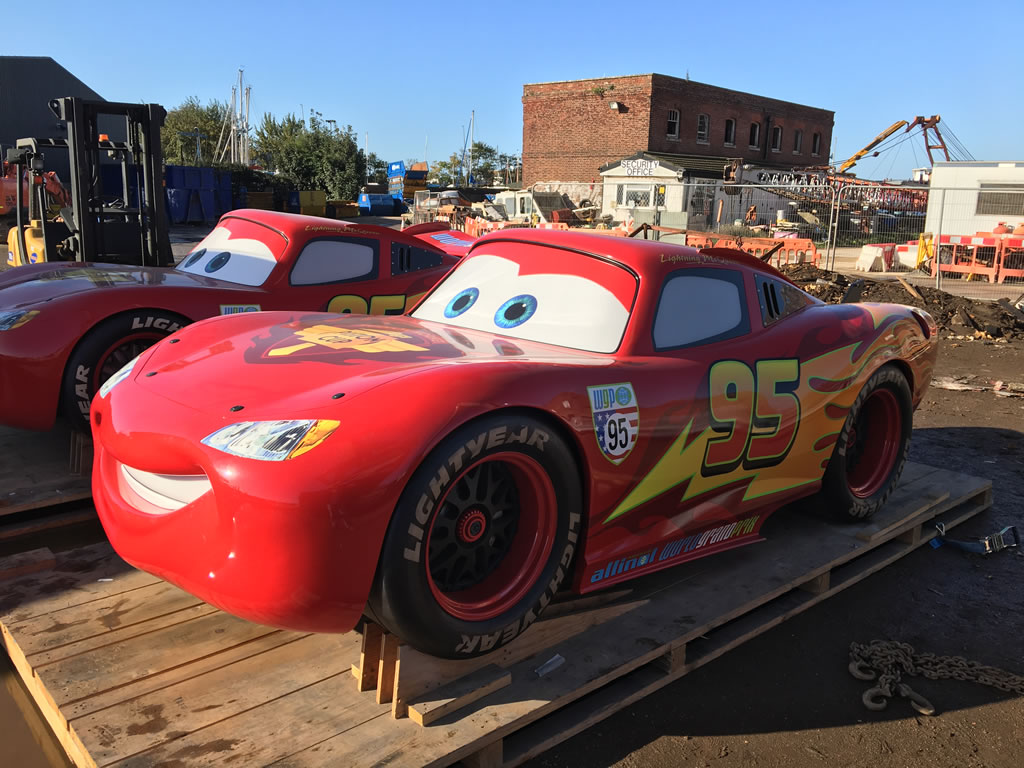Boatbreakers Scrapheap Challenges
Scrapheap Challenges
What happens to old boats? It isn’t something many boat owners ever think about. Why should they? It’s an issue even the marine industry has done its best to ignore. Until somebody comes to scrap their vessel with us at Boatbreakers many owners will think that like a car a boat has some scrap value. But this is rarely the case.
“Why do I have to pay you to take my boat away?” is probably the most common question Boatbreakers get asked. The simple answer is because transport and waste disposal usually outweigh any value the boat may have. Added to that the time it takes to retrieve and strip some of these boats down the costs quickly add up.
Economic Sense
It’s not just old boats that can become end of life. Sometimes it’s just makes economic sense to scrap. If you are paying thousands in mooring fees for a boat you just can’t sell, choosing to scrap can offer you a quick way out of boat ownership.
Even having your boat insured doesn’t always mean you don’t have to worry about boat disposal. Many of the leading insurance companies across Europe will simply hand you the boat back after they’ve written her off. They do it to avoid any liability but it can often mean boats then get abandoned or sold on when really they are no longer safe for use.
660,000 Boats
For the number of boats in the UK, 660,000 registered (according to the BMF). Plus many hundreds of thousands more unlicensed you’d think the processes for end of life would be sorted. After all we are an island nation full of boat lovers.
Boatbreakers is the UK’s only dedicated boat disposal and salvage company, committed to disposing of end-of-life boats sustainably. We are based in Portsmouth Harbour and bring boats from across the country and Europe to our yard, detach items suitable for resale (we have an online store boatscrapyard.com), remove all recyclable and noxious materials, then dispose of the hulls. We also aim to offer boat owners the cheapest boat bits they can find online.
Solution for Write Offs
Boatbreakers take boats past their useful life out of the environment. We provide a solution for write–offs so insurers don’t have to take continuing liability. Then we help boat owners escape the treadmill of paying mooring fees for a boat beyond resale. And we help to reduce the growing problem of derelicts finding their way into public or private foreshores, causing both a hazard and an eyesore.
Because there is such a grey area around boats people can walk away from their problem boat. The bill will fall to whoever owns the land. This is often the case for councils and harbour boards who must clean up boat wrecks. It’s effectively marine fly tipping of boats past their sail by date. We regularly get asked to remove boats from marinas or boat yards. Where someone has turned up given a false name and then disappeared.
Corona Virus Situation
As the world is in a strange lock down situation boat owners are faced with having to pay expensive mooring fee bills for boats they can’t even visit let alone use. It will be interesting to see once the Corona Virus situation does pass whether we have an influx of boat owners at their wits’ end with boat ownership.
Admittedly the vast majority of boats we are scrapping at the moment are old yachts or river cruisers. People just can’t seem to sell old yachts and on the inland waterways people seem to prefer narrowboats than actual cruisers.
However, we do still dispose of plenty of Power boats and RIBs. Usually these are newer boats that are insurance write offs. When things go wrong in a high powered sports boat they tend to do more damage to themselves than an old yacht would.
Engine Theft
Unfortunately, another common reason for us being asked to collect RIBs is because of thefts. Because they usually have a high powered, high value engine on the back RIBs are always a target. We’ve seen lots of cases where thieves have simply cut the engines from the transom.
Most disposals are Fibre Reinforced Plastic (FRP) but we also deal with wood, steel and aluminium hulls up to 24 metres. We recycle many recreational craft but use the same methods for workboats and other small commercial vessels.
Alongside our business of disposal of old boats the Boatbreakers team is trying to raise awareness of the need and solutions. We are active on social media, and we have featured in Scrap Kings on the Quest channel.
New Corner of the Boating Industry
By trying to engage with as many boat owners as possible we hope to raise awareness about the issues we face in this new corner of the boating industry.
One way we are trying to increase our recycling of vessels is by offering boat parts to our online followers. We have recently set up a Facebook group called ‘Boat Scrapyard UK’ which is where we give people pre-warning about the boats coming in. The idea is that they can then affectively pre-order parts. With nothing going to landfill without someone having the option to save it first.
Two Big Issues
There are two big issues which Boatbreakers are actively trying to change.
First, there is as yet no commercially viable use for waste FRP hulls in the UK, so the residual material still ends up in landfill and incurs disposal fees. Discussions with aggregate, energy and other potential converters of FRP residue have yielded many ideas. We want to find a use so it does not remain a pollutant for future generations.
Second, there is an ever-growing pipeline of vessels over thirty years old that need to be disposed of. Boatbreakers cannot deal with all of them ourselves. We are trying to build a network of responsible breakers around the UK to cut transport miles, reduce the carbon footprint, minimise costs and improve sustainability.
UN Report
Boatbreakers are in discussion with leading industry experts in the UK and abroad who are starting to highlight the issues, including the author of a UN report on end of life boats. This is now a problem across the world. We hope to pool the ideas of the industry’s leading thinkers and implement them to help shape the future for Boatbreakers and the wider vessel recycling industry.
The FRP Boats that were built in the early days of using the material are now coming to the end of the natural life cycle. Boats have been built out of the material since the 60s. So, if the 60s boats are now coming to the end of their life cycle that means boats built in the 70s, 80s, 90s and the 21st-century will soon follow.
First FRP Boats
When FRP was first used boats were laid up thickly but as boatbuilders got more used to the material boat hulls have become thinner. This means that the more modern boats may not have the same lifespan as the older vessels.
So, in the next 20 years they could come a point where the old boats and the new boats are both getting to the end of their natural life. If the boating world isn’t ready for it there could be hundreds of thousands of dead boats littering harbours, canals, beaches, lakes and more.
Across the EU there is believed to be around 8 million recreational craft. If even just 10% of these boats are deemed end of life. There just simply isn’t enough breakers set up to deal with so many boats.
Only Dedicated Boat Breakers
Currently it’s just Boatbreakers who are the only dedicated boat recycling company in the UK. There may be some other disposal yards that will accept a boat but in this scenario many valuable boat items that could be recycled will simply be lost into the waste bin.
Our goal is to help create a network of breakers across the country and alongside this to help create an appetite for the re-use of fibreglass material. It’s all well and good trying to come up with a solution for the waste but we need other companies to want to use the material. There is no point investing millions of pounds in crushing machinery to turn boats into bags of dust. If that bag of dust cannot be used for something else.
Other Countries Developing Solutions
Other countries are developing solutions for waste FRP. In Norway there is a company who grind the old boat hulls down. Then this powder is used to create new structures like benches and plant pots. The US are looking to use the waste material in the cement industry.
Something similar could potentially be done in the UK. But they would need to be support at government level to help find solutions. Other countries offer funding to their boat breakers including Holland, Canada, US and Sweden.
France is looking to add a levy on new builds. This money will then be put aside for when the boat comes to the end of its life. This is a good idea for solving the issue of who pays for the disposal process. There is one problem though. If the boat’s sold to another country. Does the pot of money move to the nation where the boat is eventually scrapped?
Landfill Ban
Germany has banned FRP going to landfill completely. We believe their waste material is sent to an incinerator and converted into energy.
Countries across Europe are all aware of the problems and looking to find solutions. But any plan must be worldwide otherwise people will exploit the more lenient areas. If it becomes too expensive to dispose of a boat in one country those boats could be sailed to and dumped somewhere else.
Even on a local level. If one area of the UK suddenly offered to clean up the derelict boats for free. There would be boats coming from all over to take advantage of the situation.
It is an issue that has recently reached the attention of the United Nations. AQASS Ltd are a marine research company. They were commissioned by the UN to investigate the problem of end of use boats.
Tahiti Complaint
Strangely it all stemmed from a complaint from the government of Tahiti in the South Pacific. They had been inundated with people that had sailed to the island and then flown home. As you can imagine if England hasn’t got a handle on boat breaking yet the chances are Tahiti is miles behind.
As the researchers looked into the issue they quickly realised it was a global problem. After reading the report we decided it would be good to discuss the issues with Simon from AQASS as he’s local to us. We had a long chat over a coffee and he agreed that of all the developed nations in the world the UK was lagging behind. For anyone with an interest in boat recycling and the challenges the boating world faces we would recommend reading the report.
Drive Our Own Prices Down
Boatbreakers must be one of the very few companies in the world who are trying to help drive our own prices down. We hope that with more minds now thinking about the issue a solution can be found for the old FRP. This would mean we could provide the waste material to be recycled and the boat owners wouldn’t have to pay waste costs.
In addition a network of breakers across the UK and Europe would slash transport costs. If scrap prices could be in the hundreds rather than thousands we hope abandonment of vessels would dramatically reduce.
Not All Doom and Gloom
We currently rely solely on the honesty of the last owner of the boat to stump up the cash to scrap the boat.
However, it’s not all doom and gloom. At Boatbreakers, we see the future of boat disposal being full of opportunities rather than obstacles. Developing a boat disposal network will create jobs, clean up waterways, make space in boatyards and marinas. Not to mention still provide plenty of work for boat transport companies. It will provide a huge stock of secondhand boat bits so other boaters can benefit through cheaper prices. Our Boat Scrapyard site is testament to how popular recycled boat bits can be.








